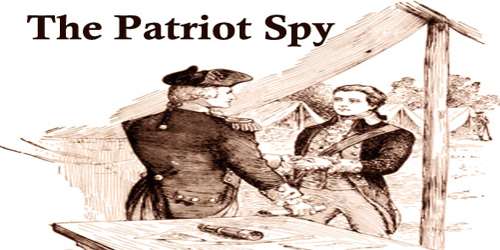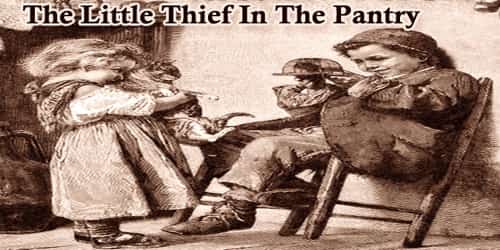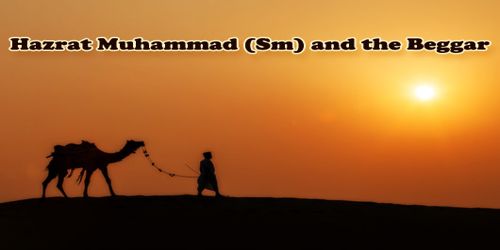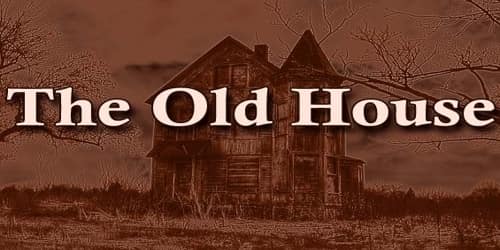It was plain that Washington was troubled. As he paced the piazza of the stately Murray mansion one fine autumn afternoon, he was saying half aloud to himself, “Shall we defend or shall we quit New York?”
At this time Washington’s headquarters were on Manhattan Island, at the home of the Quaker merchant, Robert Murray; and here, in the first week of September 1776, he had asked his officers to meet him in council.
Was it strange that Washington’s heart was heavy? During the last week of August, the Continental army had been defeated in the battle of Long Island. A fourth of the army were on the sick list; a third were without tents. Winter was close at hand, and the men, mostly new recruits, were short of clothing, shoes, and blankets. Only fourteen thousand men were fit for duty, and they were scattered all the way from the Battery to Kingsbridge, a distance of a dozen miles or more.
The British army, numbering about twenty-five thousand, lay encamped along the shores of New York Bay and the East River. The soldiers were veterans, and they were led by veterans. A large fleet of warships, lying at anchor, was ready to assist the land forces at a moment’s notice. Scores of guard ships sailed to and fro, watching every movement of the patriot troops.
To give up the city to the British without battle seemed a great pity. The effect upon the patriot cause in all the colonies would be bad. Still, there was no help for it. What was the use of fighting against such odds? Why run the risk of almost certain defeat? Washington always looked beyond the present, and he did not intend now to be shut up on Manhattan Island, perhaps to lose his entire army; so, with the main body, he moved north to Harlem Heights. Here he was soon informed by scouts that the British were getting ready to move at once. Whither, nobody could tell. Such was the state of affairs that led Washington to call his chief officers to the Murray mansion, on that September afternoon.
Of course, they talked over the situation long and calmly. After all, the main question was, What shall be done? Among other things, it was thought best to find the right sort of man, and send him in disguise into the British camp on Long Island, to find out just where the enemy were planning to attack.
“Upon this, gentlemen,” said Washington, “depends at this time the fate of our army.”
The commander in chief sent for Colonel Knowlton, the hero of the rail fence at Bunker Hill.
“I want you to find for me in your regiment or in some other,” he said, “some young officer to go at once into the British camp, to discover what is going on. The man must have a quick eye, a cool head, and nerves of steel. I wish him to make notes of the position of the enemy, draw plans of the forts, and listen to the talk of the officers. Can you find such a man for me this very afternoon?”
“I will do my best, General Washington,” said the colonel, as he took leave to go to his regiment.
On arriving at his quarters that afternoon, Knowlton called together a number of officers. He briefly told them what Washington wanted, and asked for volunteers. There was a long pause, amid deep surprise. These soldiers were willing to serve their country; but to play the spy, the hated spy, was too much even for Washington to ask.
One after another of the officers, as Knowlton called them by name, declined. His task seemed hopeless. At last, he asked a grizzled Frenchman, who had fought in many battles and was noted for his rash bravery.
“No, no! Colonel Knowlton,” he said, “I am ready to fight the redcoats at any place and at any time; but, sir, I am not willing to play the spy, and be hanged like a dog if I am caught.”
Just as Knowlton gave up hope of finding a man willing to go on the perilous mission, there came to him the painfully thrilling but cheering words, “I will undertake it.” It was the voice of Captain Nathan Hale. He had just entered Knowlton’s tent. His face was still pale from a severe sickness. Every man was astonished. The whole company knew the brilliant young officer, and they loved him. Now they all tried to dissuade him. They spoke of his fair prospects, and of the fond hopes of his parents and his friends. It was all in vain. They could not turn him from his purpose.
“I wish to be useful,” he said, “and every kind of service necessary for the public good becomes honorable by being necessary. If my country needs a peculiar service, its claims upon me are imperious.”
These patriotic words of a man willing to give up his life, if necessary, for the good of his country silenced his brother officers.
“Good-by, Nathan!” “Don’t you let the redcoats catch you!” “Good luck to you!” “We never expect to see you again!” cried his nearest friends in camp, as, in company with Colonel Knowlton, the young captain rode out that same afternoon to receive his orders from Washington himself.
Nathan Hale was born, as were his eight brothers and his three sisters, in an old-fashioned, two-storied house, in a little country village of Connecticut. His father, a man of integrity, was a stanch patriot. Instead of allowing his family to use the wool raised on his farm, he saved it to make blankets for the Continental army. The mother of this large family was a woman of high moral and domestic worth, devoted to her children, for whom she sought the highest good. It was a quiet, strict household, Puritan in its faith and its manners, where the Bible ruled, where family prayers never failed, nor was grace ever omitted at meals. On a Saturday night, no work was done after sundown.
Young Nathan was a bright, active American boy. He liked his gun and his fishing pole. He was fond of running, leaping, wrestling, and playing ball. One of his pupils said that Hale would put his hand upon a fence as high as his head, and clear it easily at abound. He liked books, and read much out of school. Like two of his brothers, he was to be educated for the ministry. When only sixteen, he entered Yale College and was graduated two years before the battle of Bunker Hill. Early in the fall of 1773, the young graduate began to teach school and was soon afterward made master of a select school in New London, in his native state.
At this time young Hale was about six feet tall and well built. He had a broad chest, full face, light blue eyes, fair complexion, and light brown hair. He had a large mole on his neck, just where the knot of his cravat came. At college his friends used to joke him about it, declaring that he was surely born to be hanged.
Such was Nathan Hale when the news of the bloodshed at Lexington reached New London. A rousing meeting was held that evening. The young schoolmaster was one of the speakers.
“Let us march at once,” he said, “and never lay down our arms until we obtain our independence.”
The next morning, Hale called his pupils together, “gave them earnest counsel, prayed with them, and shaking each by the hand,” took his leave, and during the same forenoon marched with his company for Cambridge.
The young officer from Connecticut took an active part in the siege of Boston, and soon became captain of his company. Hale’s diary is still preserved, and after all these years it is full of interest. It seems that he took charge of his men’s clothing, rations, and money. Much of his time he was on picket duty and took part in many lively skirmishes with the redcoats. Besides studying military tactics, he found time to make up wrestling matches, to play football and checkers, and, on Sundays, to hold religious meetings in barns.
Within a few hours after bidding good-bye to General Washington, Captain Hale, taking with him one of his own trusty soldiers, left the camp at Harlem, intending at the first opportunity to cross Long Island Sound. There were so many British guard ships on the watch that he and his companion found no safe place to cross until they had reached Norwalk, fifty miles up the Sound on the Connecticut shore. Here a small sloop was to land Hale on the other side.
Stripping off his uniform, the young captain put on a plain brown suit of citizen’s clothes and a broad-brimmed hat. Thus attired in the dress of a schoolmaster, he was landed across the Sound and shortly afterward reached the nearest British camp.
The redcoats received the pretended schoolmaster cordially. A captain of the dragoons spoke of him long afterward as a “jolly good fellow.” Hale pretended that he was tired of the “rebel cause,” and that he was in search of a place to teach school.
It would be interesting to know just what the “schoolmaster” did in the next two weeks. Think of the poor fellow’s eagerness to make the most of his time, drawing plans of the forts, and going rapidly from one point to another to watch the marching of troops, patrols, and guards. Think of his sleepless nights, his fearful risk, and the ever-present dread of being recognized by some Tory. All this we know nothing about, but his brave and tender heart must sometimes have been sorely tried.
From the midst of all these dangers Hale, unharmed, began his return trip to the American lines. He had threaded his way through the woods, and round all the British camps on Long Island until he reached in safety the point where he had first landed. Here he had planned for a boat to meet him early the next morning, to take him over to the mainland.
Many a patriotic American boy has thought what he should have done if he could have exchanged places with Nathan Hale on this evening. Nearby, at a place then called and still called “The Cedars,” a woman by the name of Chichester, and nicknamed “Mother Chick,” kept a tavern, which was the favorite resort of all the Tories in that region. Hale was sure that nobody would know him in his strange dress, and so he ventured into the tavern. A number of people were in the barroom. A few minutes afterward, a man whose face seemed familiar to Hale suddenly left the room and was not seen again.
The pretended schoolmaster spent the night at the tavern.
Early the next morning, the landlady rushed into the barroom, crying out to her guests, “Look out, boys! There is a strange boat close inshore!”
The Tories scampered as if the house were on fire.
“That surely is the very boat I’m looking for,” thought Hale on leaving the tavern, and hastened towards the beach, where the boat had already landed.
A moment more, and the young captain was amazed at the sight of six British marines, standing erect in the boat, with their muskets aimed at him. He turned to run, when a loud voice cried out, “Surrender or die!” He was within close range of their guns. Escape was not possible. The poor fellow gave himself up. He was taken on board the British guard ship Halifax, which lay at anchor close by, hidden from sight by a point of land.
Some have declared that the man who so suddenly left the tavern was a Tory cousin to Hale, and saw at once through the patriot’s disguise; that, being quite a rascal, he hurried away to get word to the British camp. There seems to be no good reason, however, to believe that the fellow was a kinsman.
However this may be, the British captured Captain Hale in disguise. They stripped him and searched him, and found his drawings and his notes. These were written in Latin and had been tucked away between the soles of his shoes.
“I am sorry that so fine a fellow has fallen into my hands,” said the captain of the guard ship, “but you are my prisoner, and I think a spy. So to New York, you must go!”
General Howe’s headquarters were at this time in the elegant Beekman mansion, situated near what is now the corner of Fifty-First Street and First Avenue. Calm and fearless, the captured spy stood before the British commander. He bravely owned that he was an American officer, and said that he was sorry he had not been able to serve his country better. No time was to be wasted in calling a court-martial. Without trial of any kind, Captain Hale was condemned to die the death of a spy. The verdict was that he should be hanged by the neck, “to-morrow morning at daybreak.”
That night, which was Saturday, September 21, the condemned man was kept under a strong guard, in the greenhouse near the Beekman mansion. He had been given over to the care of the brutal Cunningham, the infamous British provost marshal, with orders to carry out the sentence before sunrise the next morning.
“To-morrow morning at daybreak.”
How cruelly brief! Nathan Hale, the patriot spy, was left to himself for the night.
When morning came, Cunningham found his prisoner ready. While preparations were being made, a young officer, moved in spite of himself, allowed Hale to sit in his tent long enough to write brief letters to his parents and his friends. The letters were passed to Cunningham to be sent. He read them, and as he saw the noble spirit which breathed in every line, the wretch began to curse and tore the letters into bits before the face of his victim. He said that the rebels should never know they had a man who could die with such firmness.
It was just before sunrise on a lovely Sabbath morning that Nathan Hale was led out to death. The gallows was the limb of an apple tree. Early as it was, a number of men and women had come to witness the execution.
“Give us your dying speech, you young rebel!” shouted the brutal Cunningham.
The young patriot, standing upon the fatal ladder, lifted his eyes toward heaven, and said, in a calm, clear voice, “I only regret that I have but one life to lose for my country.”
These were his last words. The women sobbed, and some of the men began to show signs of sympathy.
“Swing the rebel off!” cried Cunningham, in a voice hoarse with anger. The order was obeyed.
Half an hour later, the body of the patriot spy was buried, probably beneath the apple tree, but the grave was not marked, and the exact spot is now unknown. A British officer was sent, under a flag of truce, to tell Washington of the fate of his gallant young captain.
Thus died in the bloom of life, Captain Nathan Hale, the early martyr in the cause of our freedom. Gifted, educated, ambitious, he laid aside every thought of himself, and entered upon service of the greatest risk to life and to honor, because Washington deemed it important to the sacred cause to which they had both given their best efforts.
“What was to have been your reward in case you succeeded?” asked Major Tallmadge, Hale’s classmate, of the British spy, Major André, as his prisoner was being rowed across the Hudson River to be tried by court-martial.
“Military glory was all I sought for,” replied André; “the thanks of my general and the approbation of my king would have been a rich reward.”
Hale did not expect, nor did he care, to be a hero. He had no thought of reward or of promotion. He sacrificed his life from a pure sense of what he thought to be his duty.
Written by Albert F. Blaisdell
















